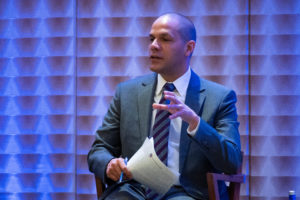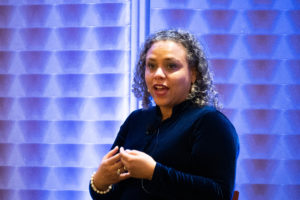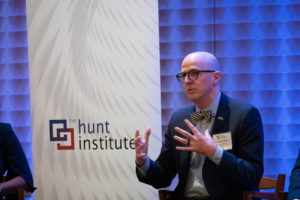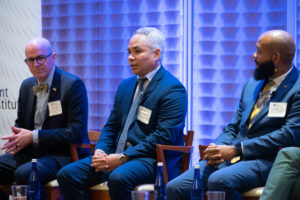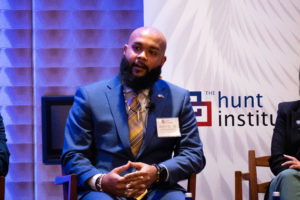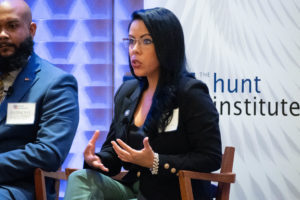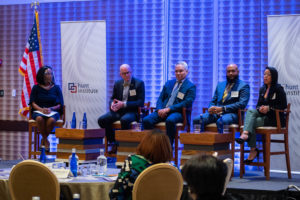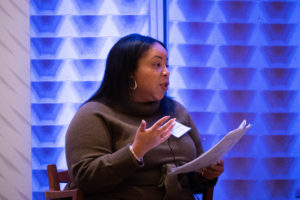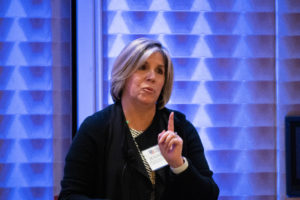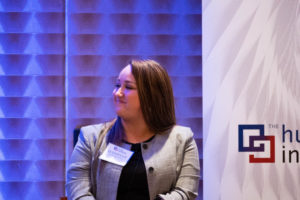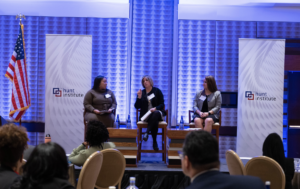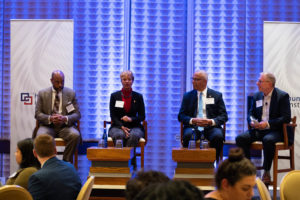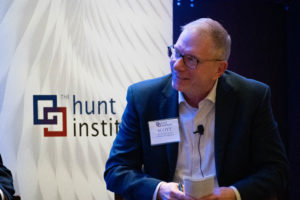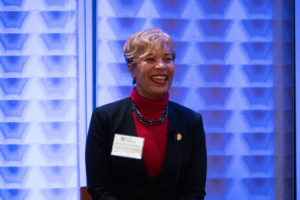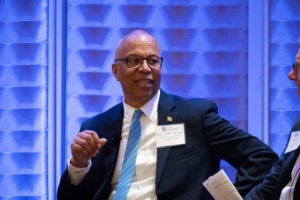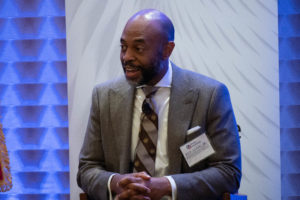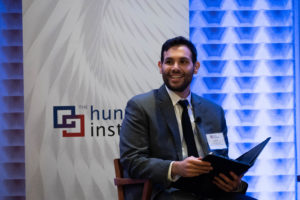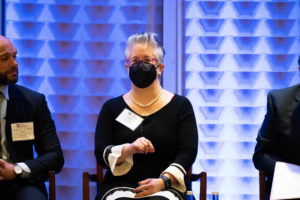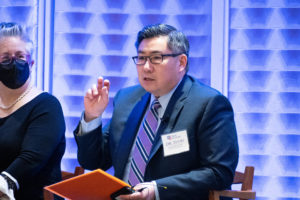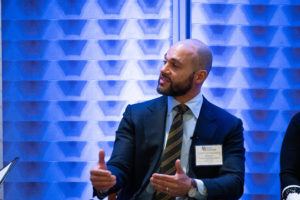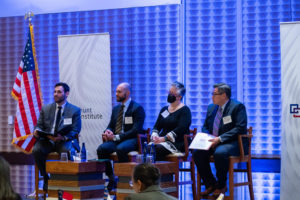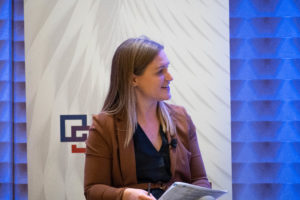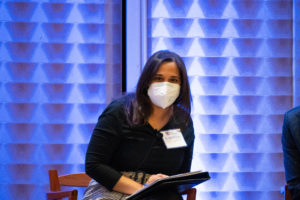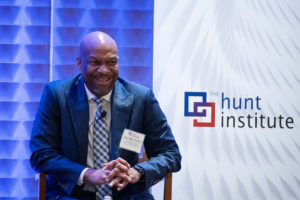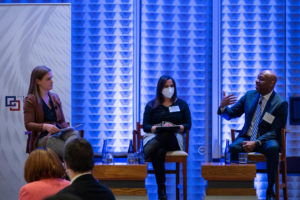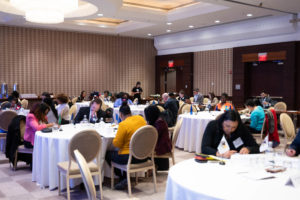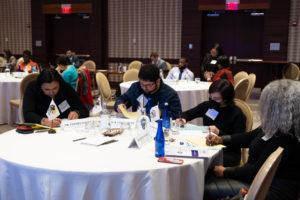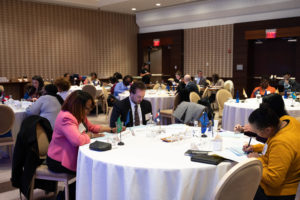The Hunt Institute hosted the first convening of the DEI State Officers Network, the first Network of its kind, on January 30-31, 2023, in Washington, D.C., with support from Lumina Foundation. 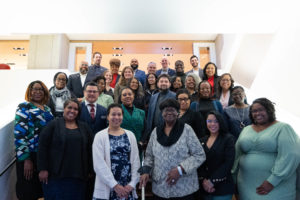
DEI state officers can contribute to policy and content knowledge in a myriad of ways, based on their experiences and areas of expertise. This Network is positioned to support these chief diversity officers with the creation of a multi-state network and providing state-specific support.
To kick off the event, Dr. Javaid Siddiqi, our President and CEO, sat down with Dr. Janice Underwood, Director of the Office of Diversity, Equity, Inclusion, and Accessibility at the Office of Personnel Management for the Office of the President, to set the stage for the meeting and discuss the nuances of DEI policy and practice at the state and federal level, as well as detail how policies can assist in dismantling structural and societal inequities.
Following this discussion, Dr. Michelle Asha Cooper, Vice President for Public Policy and Executive Director of Lumina Foundation’s Washington, D.C. office, moderated a conversation with Alfredo Hernandez, Racial Equity Officer for the Michigan Department of Civil Rights, Nubia Peña, Senior Advisor on Equity and Opportunity and Director of the Utah Division of Multicultural Affairs for the Office of Governor Spencer J. Cox, Anthony Phillips II, Deputy Chief and Executive Director of External Equity in the State of Indiana, and Joseph Pinnell, Deputy Chief and Executive Director of Workforce Engagement in the State of Indiana. This session explored the roles and responsibilities DEI Officers have in their states, how such varies across states, and the ways to build capacity to ensure that these roles are sustainable.
Next up, our very own Director of Equity Initiatives, Dr. Ashlee Canty, moderated a discussion on the role of data in access and equity in education. Resource experts Jennifer Bell-Ellwanger, President and CEO of the Data Quality Campaign, and Danielle Pavliv, Chief Diversity & Inclusion Officer at SAS, shared key metrics that organizations and industries can track to measure the impact of DEI efforts, review state-level data outcomes, and answer other data-specific questions.
To close out Day One, Scott Jenkins, Strategy Director for State Policy at Lumina Foundation, opened the floor for Senator Sonya Halpern, Representative Harold Love, Jr., and Lieutenant Governor Boyd Rutherford to highlight the importance of working across the aisle to advance diversity, equity, and inclusion initiatives at state and local levels. It was the perfect way to end a productive day, and we are extremely grateful to Lumina Foundation for their generous support of this Network and convening.
Day Two began with a panel moderated by Jay Martinez, Manager of Education Policy & Partnerships at the Chan Zuckerberg Initiative, featuring Erica M. Romero, Vice President of Education Policy and Advocacy at Latinos for Education, Dr. Mark Teoh, Program Officer of Education at the Raikes Foundation, and Robert White, District of Columbia Councilmember At-Large. This session focused on how policy can assist in cultivating a diverse educator workforce by focusing on increasing the diversity of schoolteachers and leaders.
For the Network’s final panel, our very own Director of Higher Education, Dr. Madeline Smith, sat down with Antwanye Ford, Secretary of NAWB Board of Directors and Co-Chair of the NAWB Task Force, and Karishma Merchant, Associate Vice President of Policy & Advocacy at Jobs for the Future, to discuss how states, organizations, and agencies benefit when they are intentional about embracing diversity and how that in turn positively impacts employees’ trajectories and how that benefits the stakeholders that are served.
To bring the convening to a close, participants gathered in small group discussions based on their state/region to reflect on what they’ve learned, any lingering questions, and how this meeting will inform the work they do back in their communities.






